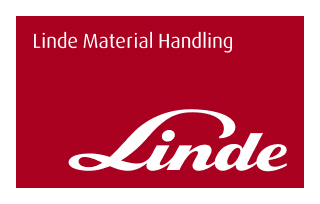Diesel forklifts are a common sight across Australian worksites, especially in outdoor environments and heavy-duty warehouse operations. Known for their power and durability, diesel forklifts are often relied on where electric forklifts or LPG models may fall short. But while they bring serious muscle to the table, they also consume diesel fuel, and the costs of that can add up fast.
Understanding how much diesel a forklift uses per hour is key to managing your operating costs effectively. Whether you’re running your own fleet or relying on a forklift rental service, fuel efficiency can be the difference between staying on budget or blowing it wide open.
Let’s take a closer look at typical diesel consumption, and what you can do to minimise it.
Typical Diesel Forklift Fuel Consumption
On average, a diesel forklift will use between 2 to 5 litres of fuel per hour, depending on factors such as load, engine size, and usage intensity. For example:
- Light-duty forklifts (under 2.5 tonnes): 2–3 litres/hour.
- Mid-range forklifts (around 3–5 tonnes): 3–4 litres/hour.
- Heavy-duty forklifts (6 tonnes and above): 4–5+ litres/hour.
It’s important to note that real-world conditions can shift these numbers. Hot weather, rough terrain, or poorly maintained machines can increase the litres per hour significantly.
Factors That Affect Diesel Forklift Fuel Usage
Fuel efficiency isn’t just about engine size; it’s a mix of job demands, conditions, and how your operators treat the machine.
Job Type and Load Requirements
-
Constant heavy lifting burns more fuel.
-
Short, frequent trips with partial loads may be more efficient.
-
Continuous use across long shifts without downtime spikes consumption.
Surface Conditions and Terrain
-
Uneven ground or steep inclines demand more from the engine.
-
Slippery or muddy areas cause extra wheel spin and drag.
-
Indoor concrete vs. outdoor gravel? Big difference in fuel draw.
Operator Habits
Engine Health and Routine Servicing
-
A poorly tuned engine uses more fuel for the same job.
-
Dirty air filters, low oil, or worn components all contribute to fuel inefficiency.
-
Skipping regular services can lead to breakdowns and higher long-term costs.
Strategies for Reducing Fuel Consumption in Forklifts
There are a few simple changes that can make a big difference in your diesel bills:
Regular Preventive Forklift Maintenance
-
Keep engines in tip-top shape with routine inspections.
-
Check and replace filters, fluids, and worn parts early.
-
Stay on top of the manufacturer's service schedule.
Smarter Driving Techniques
-
Avoid excessive idling between tasks.
-
Use smoother acceleration and deceleration.
-
Plan routes that minimise backtracking and tight turns.
Smart Load Handling
-
Match the forklift to the weight and size of your typical loads.
-
Don’t overwork smaller forklifts with oversized pallets.
-
Properly distribute weight to avoid engine strain.
How Technology Helps Lower Fuel Use
Modern diesel forklifts come equipped with features that improve efficiency and reduce waste.
Advanced Diesel Engines
-
Tier 5 engines and emissions controls mean cleaner, more efficient combustion.
-
Lower RPM at higher torque equals better performance with less fuel.
Use of Telematics
-
Track usage patterns, idle time, and operator behaviour.
-
Get alerts when fuel usage spikes or maintenance is due.
-
Data helps identify inefficiencies before they become costly.
Eco-Friendly Options and Upgrades
-
Engine management software fine-tunes fuel use.
-
Auto idle shut-off prevents unnecessary diesel burn.
-
Optional fuel-saving modes are available in many new models.
Choosing Between Renting and Buying a Diesel Forklift
Not every business needs to own a forklift outright, and for many, a forklift rental service is a more flexible, cost-effective option.
Renting
Buying
-
Long-term asset for businesses with constant material handling needs.
-
Full control over maintenance and operation.
-
Potential tax depreciation benefits.
Fuel efficiency plays a major role in your forklift operating costs. Whether you're looking to invest in a new diesel forklift, explore high-efficiency models or take advantage of a flexible forklift rental service, Linde Material Handling Australia has the expertise to help.
Get in touch with our team today to discuss your needs, request a quote, or learn more about our wide range of fuel-efficient forklifts ready to power your operations forward.
CONTACT US

